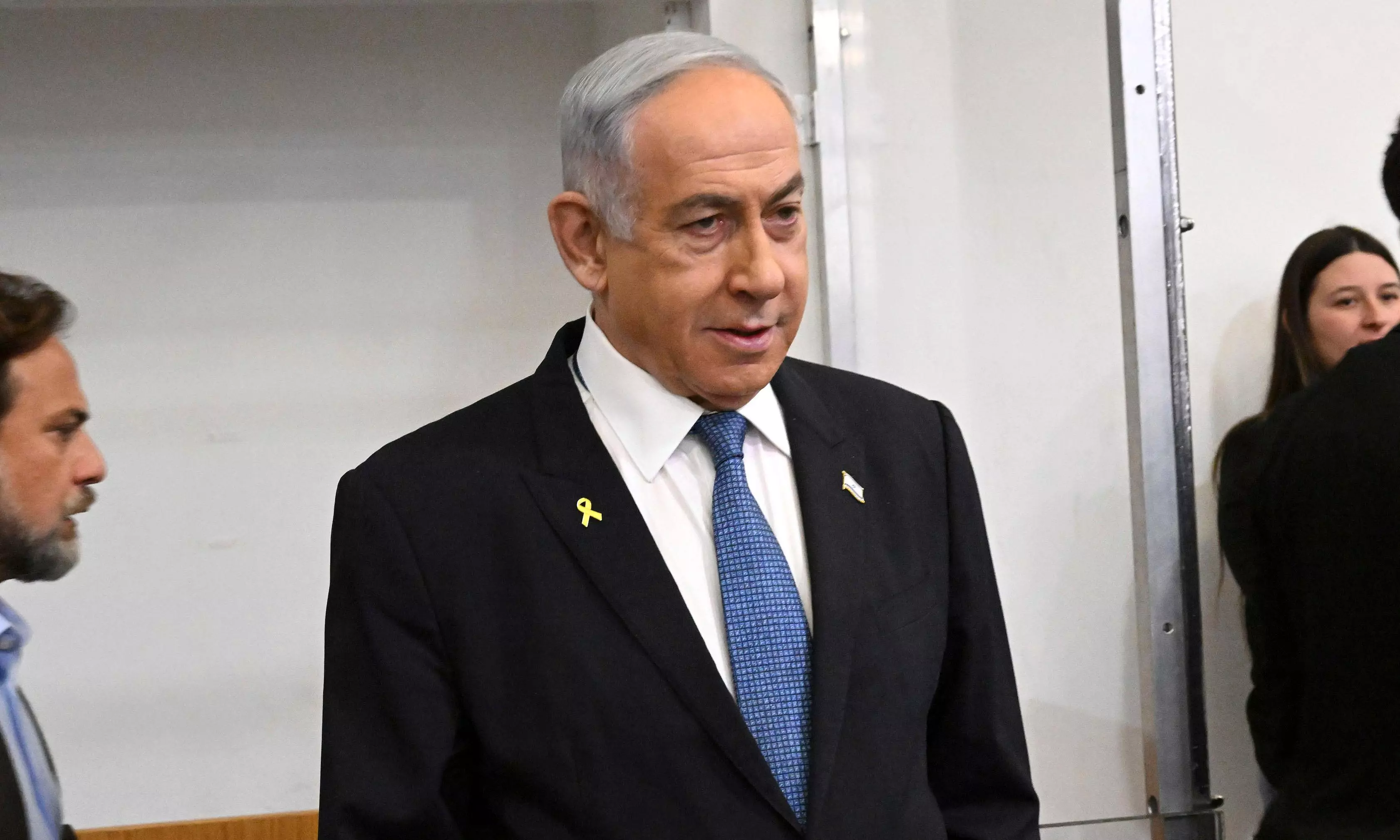
His comments to parliament came two days after Palestinian militant groups also spoke of progress on a ceasefire and hostage release deal.
In recent days, indirect talks between Israel and Hamas, brokered by Qatar, Egypt and the United States, took place in Doha, reviving hopes of a deal that has proved elusive.
“Everything we are doing cannot be disclosed. We are taking action to bring them back. I want to say cautiously that there has been some progress, and we will not stop taking action until we bring them all home,” Netanyahu told parliament. On the same day, he again took the stand on his ongoing corruption case.
“I want to say to the families of the hostages: we are thinking of you and we will not leave your loved ones, who are also our loved ones.”
Hostage families have questioned the sincerity of government negotiation efforts, and critics have long accused Netanyahu of stalling ceasefire talks, prolonging the war in part to appease his far-right coalition partners.
On Saturday, Hamas, Islamic Jihad and the left-wing Popular Front for the Liberation of Palestine said progress had been made.
“The possibility of reaching an agreement (for a cease-fire and prisoner exchange agreement) is closer than ever, if the enemy stops imposing new conditions,” the groups said after talks in Cairo.
During an unprecedented attack by Hamas on Israel on October 7, 2023, 251 people were kidnapped, including 96 hostages in Gaza, with the military declaring 34 dead.
‘full power’
================
Negotiations after a week-long ceasefire in November 2023 have faced several challenges, with the primary point of contention being the establishment of a lasting ceasefire.
Another unresolved issue is the post-war governance of the region.
Hamas’s armed wing said the fate of some of the detainees depended on how the Israeli army responded.
“If the occupation forces advance even a few hundred meters in some areas that are already on the ground, it will decide the fate of some of the enemy’s hostages,” said Abu Obeidah, a spokesman for the Izzedin al-Qassam Brigades. a statement.
In an interview with The Wall Street Journal last week, Netanyahu said: “I will not agree to end the war before Hamas is removed.”
He said Israel “is not going to leave them in power in Gaza, 30 miles from Tel Aviv. It’s not going to happen.”
US Secretary of State Anthony Blinken said on October 23 that Israel had “succeeded in destroying Hamas’ military capabilities” and removed its senior leadership. With those successes, he said, “it’s time to bring the hostages home and end the war by understanding what happens next.”
Among the Hamas leaders killed by Israel was its political chief Ismail Haniyeh, Defense Minister Israel Katz said Monday, in the first public admission that Israel was behind Haniyeh’s death in Tehran in late July.
Israel’s military said Monday that three soldiers were killed in northern Gaza, Israel says is the focus of a months-long offensive to prevent Hamas from regrouping there.
In parliament, Netanyahu also warned Yemen’s Iran-backed Houthi rebels, who fired two missiles at Israel last week, injuring 16 people in a commercial center in Tel Aviv on Saturday.
“I have instructed our forces to destroy the Houthis’ infrastructure because whoever tries to harm us will be hit with full force,” he said, “even if it takes time.”
After a rebel missile badly damaged an Israeli school last week, Israeli warplanes retaliated against ports and energy infrastructure, which the army said had contributed to the Houthi rebel campaign. Houthi rebels have said that nine people were killed in the Israeli attack.
‘Take advantage of this opportunity’
===========================
On Saturday, the United States struck targets in Yemen’s rebel-held capital, Sanaa, hours after the Houthis fired missiles at Tel Aviv.
US and British forces have repeatedly struck rebel targets in Yemen this year in response to Houthi attacks on ships in the Red Sea region, vital to world trade.
Netanyahu also said he wants to sign a new peace deal with Arab countries, similar to the “Abraham Accords” reached in 2020 under Donald Trump’s first US administration. Those agreements saw Bahrain, the United Arab Emirates and Morocco establish formal relations with Israel.
“Middle Arab countries see Israel as a regional power and potential ally. I want to make full use of this opportunity,” he said.
“Together with our American friends, I plan to expand the Abraham Accords … and thus the face of the Middle East will change even more dramatically.”
Netanyahu also said Israel would not allow “terrorist organizations to live near our communities” near the border with Syria.
“This is a fight for our existence, for the State of Israel. We must protect our borders,” he said.